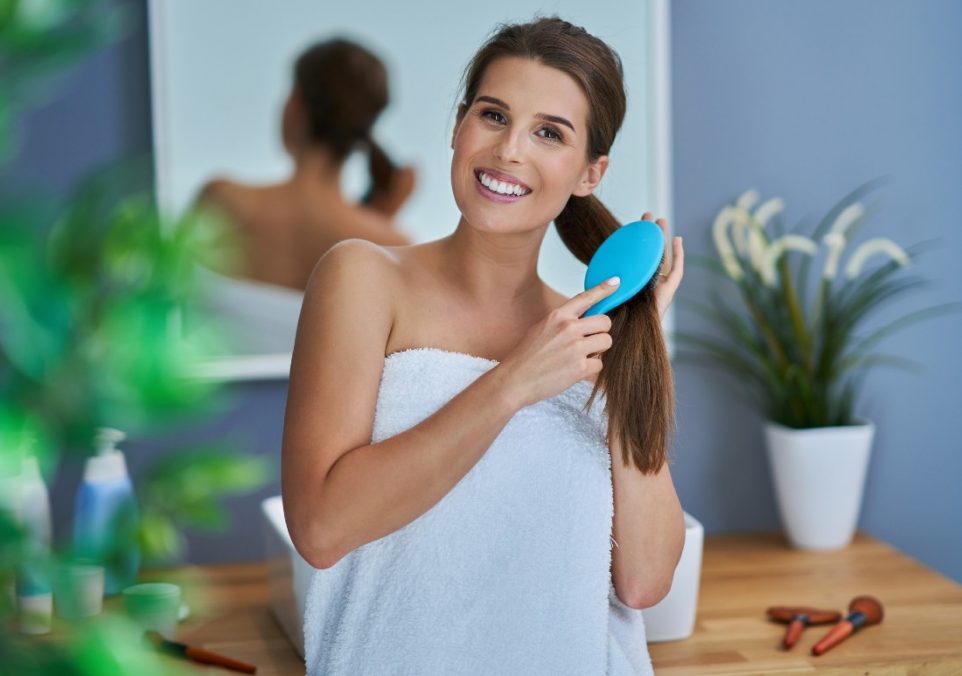Does Brushing Your Hair Make It Grow? Myths and Facts About Hair Growth

Long, luscious locks have always been a symbol of beauty and vitality, making hair growth a topic of fascination and intrigue. As a result, a multitude of myths and misconceptions about hair growth have circulated for generations. One common belief is that frequent brushing can accelerate hair growth, while others swear by various home remedies or unconventional practices.
In this blog, we aim to separate fact from fiction by exploring the science behind hair growth. We’ll debunk common myths, shed light on the factors influencing hair growth, and provide you with evidence-based tips for achieving healthier and longer hair.
Myth 1: Frequent Brushing Makes Hair Grow Faster
One of the most prevalent myths is that frequent use of a boar bristle brush can stimulate hair follicles and promote faster hair growth. However, this notion is more fiction than fact. While brushing does have some benefits, such as distributing natural oils along the hair shaft and improving scalp circulation, it doesn’t actually alter the rate at which hair grows from the follicle. Hair growth is primarily influenced by genetics and hormonal factors, and brushing alone cannot change these inherent determinants.
Myth 2: Trimming Your Hair Frequently Encourages Growth
Another widely believed myth is that regular trims help hair grow faster. In reality, trimming the ends of your hair has no direct impact on the rate of hair growth from the scalp. Trims are essential for maintaining healthy-looking hair by removing split ends and preventing breakage, which can make hair appear shorter and less vibrant. While trims promote overall hair health, they don’t accelerate the growth process from the root.
The Science of Hair Growth
Hair growth is a complex biological process influenced by genetics, hormones, and various internal and external factors. Each hair strand undergoes a growth cycle with three phases: anagen (growth phase), catagen (transitional phase), and telogen (resting phase).
The length and duration of these phases are genetically predetermined, meaning your hair’s growth potential is largely determined by your DNA. Hormones, nutrition, and overall health can influence the rate and quality of hair growth, but external factors like brushing or trimming play minimal roles in altering the intrinsic growth process.
Fact 1: Scalp Health Matters
While brushing itself may not directly impact hair growth, maintaining a healthy scalp is crucial for optimal hair growth. A clean and well-circulated scalp encourages the growth of strong and vibrant hair. Regular, gentle brushing can help remove dead skin cells and distribute natural oils, keeping your scalp in good condition.
Fact 2: Proper Nutrition Supports Hair Growth
Nutrition plays a vital role in the health and growth of your hair. A well-balanced diet rich in essential nutrients like vitamins, minerals, and protein is essential for promoting healthy hair growth. Nutrients like biotin, Vitamin D, and omega-3 fatty acids can help to improve hair health. Ensuring your body receives the necessary nutrients through your diet or supplements can support the quality and texture of your hair.
Conclusion
In the quest for longer, healthier hair, it’s crucial to separate hair growth myths from facts. While brushing and frequent trims may not directly stimulate hair growth, they contribute to overall hair health. The key to achieving your hair goals lies in understanding the factors that influence hair growth, such as genetics, hormones, scalp health, and nutrition.
By adopting a well-rounded approach that focuses on maintaining a healthy scalp and providing your body with the right nutrients, you can support the best possible environment for your hair to grow to its full potential. Remember, patience and consistency are key on your journey to achieving the beautiful locks you desire.